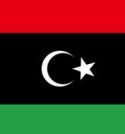Mideast unrest presents opportunities and danger (mostly the latter) for Western and Arab media. A quick overview of the state of media freedom in Egypt, Syria, Bahrain and Libya.
Egypt: Blogger Maikel Nabil Sanad was sentenced to three years in prison for insulting the military. Activists like Mona Eltahawy and Basma Badr (via The Lede) are outraged.
Sanad’s pro-Israel views may have run afoul of the new regime. Last year, he shared his views with YNet News. And in February, he filmed this message to Israel:
So much for Egypt’s spring.
Syria: The editor of the government-run paper, Tishreen, was fired for criticizing the army‘s crackdown on Daara. In an interview with Al-Jazeera, Samira al-Musalima said:
. . .there had had been a “violation of the rules barring the forces of order from firing on protesters,” and that anyone who had done so “should be punished.”
Musalima is from Daara. Memri adds that some of her relatives were killed there. Can you imagine being the editor of the government mouthpiece taskedwith spinning events that killed your family?
 Bahrain: CNN paints a harrowing picture of the situation in Bahrain. While police beat injured protesters in their hospital beds and fire on ambulances, foreign reporters’ phones and emails are monitored. That’s a lead up to physical intimidation and detention. (The crew was eventually released.)
Bahrain: CNN paints a harrowing picture of the situation in Bahrain. While police beat injured protesters in their hospital beds and fire on ambulances, foreign reporters’ phones and emails are monitored. That’s a lead up to physical intimidation and detention. (The crew was eventually released.)
When we arrived at Rajab’s home, police helicopters were hovering low overhead and suddenly six military vehicles and regular trucks drove up.
Twenty men in black ski masks surrounded our CNN team and Rajab. As the men came up to us we tried to film with a flip-cam. They immediately grabbed the camera and deleted all the images they could find.
The masked men forced us to get on the ground at gunpoint. Rajab was pushed up against a car with his hands up. The gunmen would not show us any identification to verify who they worked for . . .
We were warned by government officials not to press any further, or we would be arrested again. An official with the Ministry of Information told us “this time we might not be able to get you free again.”
Meanwhile, three editors of Al-Wasat, Bahrain’smain opposition newspaper, will go on trial, facing charges of “publishing fabricated news,” “harming public safety” and “damaging national interests.”
 Libya: The one bright spot’s in eastern Libya. AP describes the thaw:
Libya: The one bright spot’s in eastern Libya. AP describes the thaw:
Less than two months after the anti-Gadhafi uprising broke out, journalists in the rebel-held east are happily shaking off the old rules and creating a media boomlet. At least half a dozen new publications have appeared in the de facto rebel capital of Benghazi, and a former state-run radio station now broadcasts the rebel cause . . .
Money is tight. The staff at Burniq paid to print the first edition themselves. A cash donation from an oil company owned by opposition supporters keeps it running, but Khashmi says finances remain shaky.
Still, Khashmi now loves his job. “Now we’re comfortable and discuss with complete freedom,” he said.
But for Western reporters working in confined to Tripoli, it’s a totally different situation: dysfunctional media escorts, journos used as human shields, kidnapping protesters in front of media crews, and an inconvenient lack of civilian casualties.

